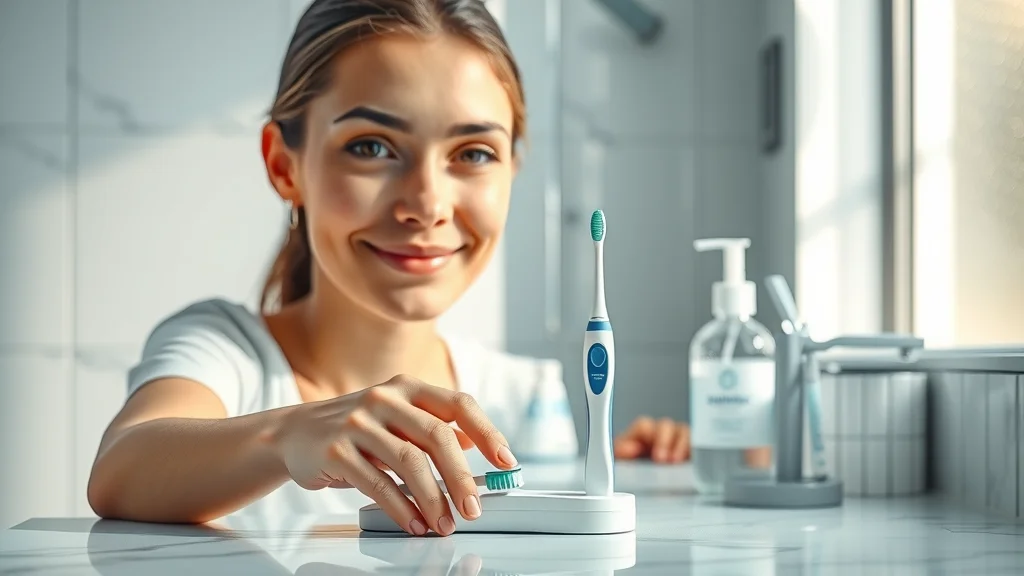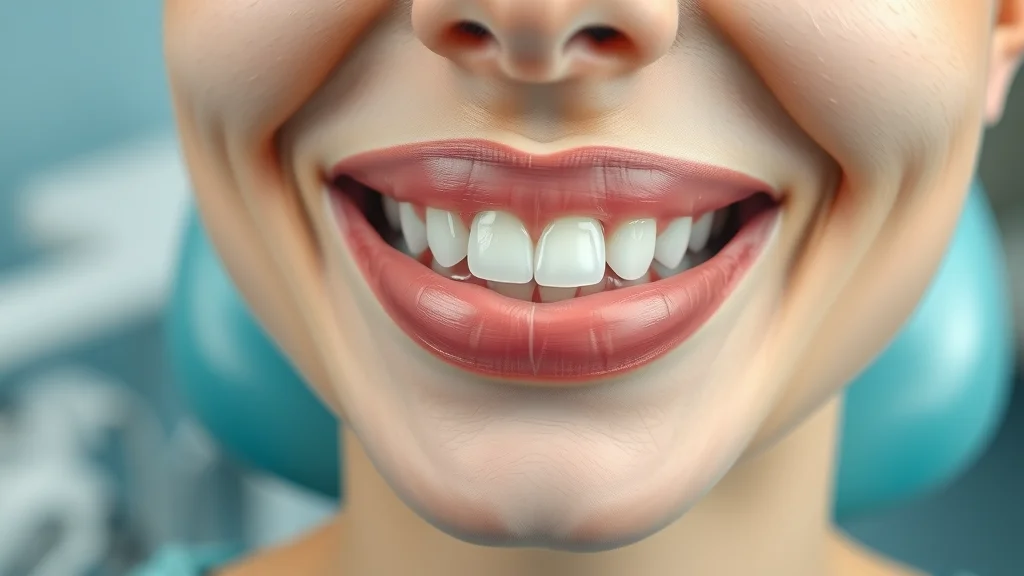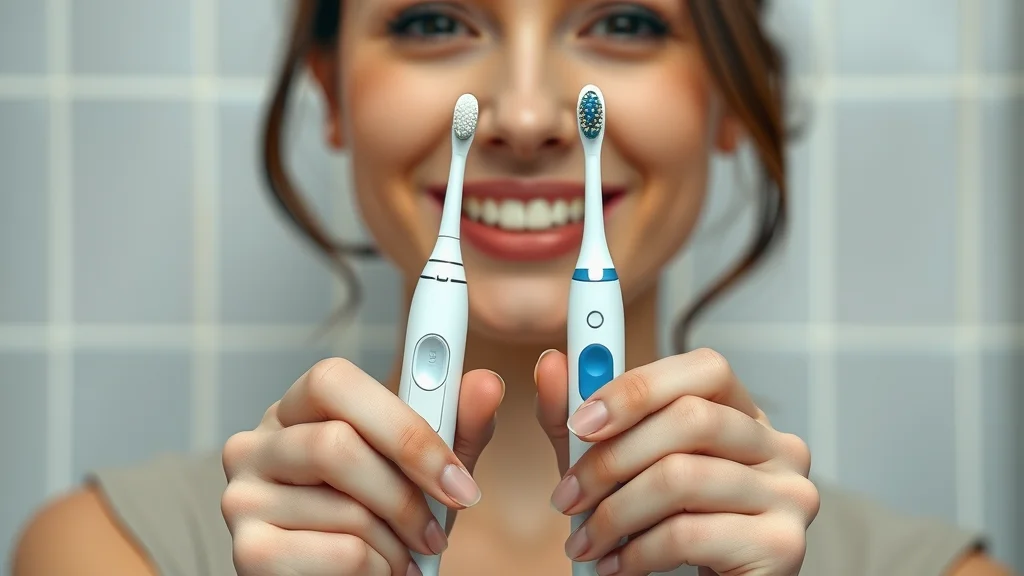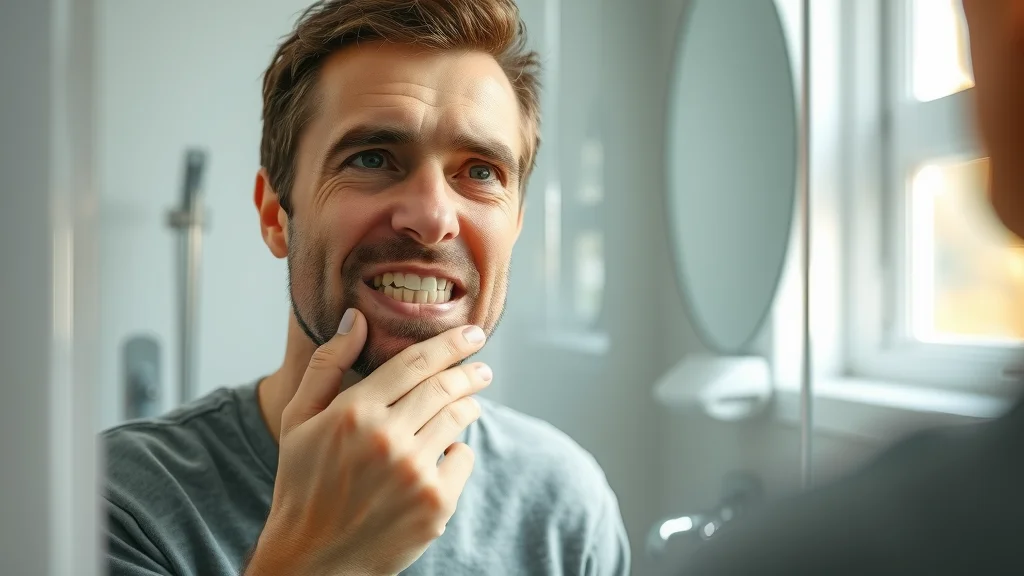Did you know that brushing and flossing alone often miss critical areas in your mouth? Over 70% of dental problems stem from overlooked habits affecting your oral care beyond daily routines. Discover the surprising gaps in your dental health beyond brushing and unlock a healthier, more confident smile.

Unlocking Hidden Threats: Why Dental Health Beyond Brushing Is Critical
The foundation of your smile depends on comprehensive oral care that goes far beyond the brief moments you spend with a toothbrush and string floss. While brushing and flossing are core to daily oral hygiene routines, recent research shows these practices alone fail to protect against many threats lurking in your mouth.
Dental health beyond brushing means recognizing and addressing hidden dangers—such as plaque buildup and neglected gum health—that contribute to tooth decay and other oral health issues. The typical care routine might ward off visible plaque, but what about bacteria hiding under your gumline, or dietary choices that erode enamel even after you rinse? Ignoring these gaps puts you at risk of gum disease, receding gums, and other chronic oral health issues.
According to oral health experts, it's often these overlooked habits—how we care for our gums, the food we eat, the stresses we face, and even how often we see our dentist—that determine our dental futures. By looking beyond the basics, you can outsmart the most common pitfalls and enjoy not just a cleaner, but a healthier and longer-lasting smile.
The limits of traditional oral care and brushing
How gum health is affected by overlooked habits
Seven specific areas of dental health beyond brushing
Expert strategies for holistic oral health
"Did you know that brushing and flossing alone often miss critical areas in your mouth? Over 70% of dental problems stem from overlooked habits affecting your oral care beyond daily routines."

The Overlooked Realms of Dental Health Beyond Brushing
1. Gum Health: More Than Brushing and Flossing
Impact of gum disease
Warning signs of poor gum health
How oral care routines should adapt
Most people focus exclusively on their teeth when thinking of oral care, yet gum health plays an equally vital role in preventing both tooth decay and serious systemic health issues. Neglected gum health can silently progress to gum disease, a condition that not only causes bleeding and receding gums but is also linked to heart disease and diabetes. Warning signs—such as persistent bad breath, swollen gums, or bleeding during brushing—are easy to overlook, especially if your daily oral hygiene ritual is hurried or incomplete. It's important to recognize that brushing and flossing, although essential, often miss the spaces between teeth and below the gumline where bacteria thrive and risk of gum disease increases.
Evolving your oral care routine is key. This means integrating tools beyond the basic brush—like water flossers and mouth rinses—and being attentive to subtle changes in your gum health. Regular self-checks and awareness of symptoms are your early defense. Just as a strong building needs a solid foundation, your teeth rely on healthy, resilient gums to last a lifetime. Remember: no daily oral hygiene practice is complete without a focus on gums.
While many people are aware of the importance of daily oral care, it's easy to overlook how genetics and hereditary factors can influence your risk for certain dental issues. For a deeper understanding of how your genes may impact your oral health and what you can do about it, explore this guide on genetic factors in health and care routines.
"Gum health is the foundation of lasting oral health, not just a side-note." – Leading Periodontist

2. The Role of Water Flossers in Dental Health Beyond Brushing
Limits of traditional floss
Benefits of water flossers
Choosing the right water flosser for your oral health
While traditional string floss has been a staple in oral care, even the most meticulous flossers can leave food particles and plaque behind, which water flossers effectively remove. The design of string floss makes it difficult to reach the deep gum pockets and tight spaces—areas prone to bacteria buildup. This is where water flossers revolutionize dental health beyond brushing. Water flossers use a focused stream of water to clean hard-to-reach areas, removing debris, reducing plaque buildup, and dramatically decreasing the risk of gum disease.
Studies have confirmed that water flossers are not just convenient—they outperform traditional floss in reducing inflammation and improving gum health, especially for people with braces, dental implants, or limited dexterity. Choosing the right water flosser comes down to personal needs: look for adjustable pressure, ease of use, and efficient reservoir design. By integrating a water flosser into your oral care routine, you take a giant leap toward holistic oral health, targeting hidden bacteria left untouched by brushes and string floss.

3. Electric Toothbrushes: Are You Missing Out on Deeper Oral Care?
Comparing electric toothbrushes to manual
Scientific findings on plaque removal and gum disease risk
Incorporating electric toothbrushes in dental health beyond brushing
Swapping a manual toothbrush for an electric toothbrush can significantly improve your oral care results by enhancing plaque removal and supporting better gum health. Numerous studies have shown that electric toothbrushes remove plaque more efficiently than manual brushes and significantly lower the risk of gum disease. Their advanced features—like timed brushing cycles, oscillating heads, and pressure sensors—ensure every surface of your teeth and gums gets the attention it needs, providing a consistent cleaning routine that manual brushing often fails to achieve, especially during hurried mornings or late nights.
Incorporating an electric toothbrush, or even better, combining it with a water flosser, raises your dental health beyond brushing to professional levels. When choosing an electric toothbrush, assess your oral health needs: select soft bristles for sensitive gums, oscillating or sonic motion for plaque control, and built-in timers to promote an effective two-minute habit. Emphasizing these modern tools as part of your dental hygiene practice fills one of the most common gaps in oral health—ensuring thorough protection against both tooth decay and advancing gum problems.

Beyond Devices—Lifestyle Traps Impacting Oral Health
4. Dietary Choices: The Epicenter of Dental Health Beyond Brushing
Acidic foods, hidden sugars, and their effects on gum health
Protective foods that support oral health
No matter how advanced your oral hygiene practice is, your dietary choices play a crucial role in maintaining dental health beyond brushing and flossing. Frequent consumption of acidic beverages, soda, and citrus erodes tooth enamel and inflames gums, while hidden sugars lurking in snacks and processed foods fuel the bacteria behind tooth decay and gum disease.
On the flip side, a balanced diet that includes leafy greens, dairy, nuts, and fibrous fruits supports strong teeth and resilient gums by neutralizing acids, increasing saliva flow, and providing essential nutrients.

Being mindful of what goes on your plate is just as essential as what goes on your toothbrush. Swapping sticky candies or starchy crackers for carrots, apples, and cheese can help prevent plaque buildup and improve breath, while protecting against health issues like diabetes that can further aggravate gum health problems. Nutrition is the silent partner in a successful care routine: get it right, and you’re protecting your mouth from the inside out.
Table: Foods That Benefit vs. Harm Dental Health
Beneficial Foods |
Foods to Limit/Avoid |
|---|---|
Leafy greens (spinach, kale) |
Sugary drinks (soda, fruit juice) |
Dairy (cheese, yogurt) |
Sticky sweets (caramel, gummies) |
Crunchy vegetables (carrots, celery) |
Acidic fruits (citrus, tomato) |
Apples and pears |
Refined carbs (crackers, white bread) |
Nuts and seeds |
Chips and fried snacks |
5. Stress, Sleep, and Dental Health Beyond Brushing
Clenching, grinding, and their impact on oral health
How sleep patterns can affect gum health and oral care
Few people realize that mental well-being and sleep quality directly impact oral health and gum health, influencing risks like gum disease and tooth decay. Chronic stress triggers involuntary habits like clenching and grinding (bruxism), which wear down tooth enamel, cause jaw pain, and ultimately aggravate receding gums and gum disease. Stress also weakens the immune system, making it harder for the body to combat oral infections or respond to inflammation. Inadequate or poor-quality sleep has a similar effect, hampering saliva production and impeding the body’s ability to repair and defend gum tissue.
Developing a consistent sleep routine, practicing mindfulness, and using protective devices—such as night guards—should become part of your care routine just like brushing. These interventions support both teeth and gum health, helping to lower the risk of silent, stress-induced oral health problems. Remember: a smart dental hygiene practice starts long before you even pick up your toothbrush at sunrise.

6. Hidden Habits: Smoking, Vaping, and Their Underestimated Oral Health Risks
Evidence on gum disease and smoking
Are vaporizers really safer? The impact on gum health
The dangers of smoking for teeth are well-known, but its corrosive effects on gum health and overall oral health are often underestimated, increasing the risk of gum disease. Smoking restricts blood flow, impedes healing, and accelerates the risk of gum disease, tooth loss, and even oral cancer. Yet, with the rise of vaping, many believe these risks no longer apply. In reality, vaporizers deliver concentrated chemicals that irritate gums, dry out oral mucosa, and contribute to plaque buildup—ultimately increasing susceptibility to infection, even without tobacco smoke.
Quitting smoking or vaping is by far the most powerful upgrade you can make for your dental health beyond brushing. Emphasize healthy oral hygiene practices, pursue cessation support, and watch for signs of gum or tooth changes. Reducing or eliminating these hidden habits can reverse damage and vastly improve both appearance and long-term health.
"Smoking doesn't just stain teeth—it erodes the very structure of your gum health." – Public Health Dentist

The Seventh Gap: Are You Visiting Your Dentist Enough?
Experts stress that while daily oral hygiene is essential, it cannot replace the benefits of professional care.
"Dental health beyond brushing includes routine screenings, preventive treatments, and personalized advice that only a dentist can provide," says Dr. Emily Carter, a practicing dentist in New York.
In addition to cavity checks and cleanings, dentists monitor for changes in the mouth that could signal underlying health problems such as diabetes or vitamin deficiencies. For children and older adults, regular visits are especially crucial, as they are more susceptible to certain dental conditions.

7. Professional Preventive Care: The Ultimate Backup for Dental Health Beyond Brushing
The role of routine checkups in oral care
Screenings for gum disease and deep cleanings
Common mistakes in dental visit schedules
Even the most diligent home oral care can’t replace the expert skill and thorough examination provided by regular dental visits, essential for preventing gum disease and maintaining oral health. Regular dental visits are your safety net—catching early signs of decay, infection, or gum disease that might otherwise go unnoticed. These checkups often include professional cleanings, plaque and tartar removal, and screenings for oral cancer. Sadly, many adults only seek care when they’re in pain, missing out on the chance for early intervention and prevention.
Experts recommend at least two dental exams and cleanings per year, adjusted based on your individual risk factors (such as history of gum disease, receding gums, or chronic conditions). Sticking to a set schedule—and not skipping or delaying appointments—is a key dental hygiene practice that ties together all other efforts for robust oral health. If you haven’t seen your dentist in six months or longer, it’s time to book that visit and close the final gap in your oral care plan.

Dental Health Beyond Brushing
Many people believe that brushing and flossing alone guarantee healthy teeth and gums, but this isn’t always true. Dental health beyond brushing requires understanding the hidden reasons behind persistent issues like bad breath, gum bleeding, or recurring cavities. For example, failing to visit the dentist regularly, or ignoring dietary sugar, can sabotage even the most disciplined routines.
Gum health in particular requires special care—such as gentle cleaning beneath the gumline, early detection of receding gums, and professional preventive care every six months. To achieve the best oral health, consider adding water flossers, adjusting your diet, and managing stress and sleep for a truly comprehensive approach.

Expert FAQs: Dental Health Beyond Brushing, Oral Health, and Gum Care
What is the biggest gap in dental health beyond brushing and flossing?
The largest overlooked area is gum health. While brushing and flossing protect tooth surfaces, most people miss the need for deeper interdental cleaning and regular gum monitoring, leading to chronic inflammation and higher risk of gum disease.Are water flossers and electric toothbrushes necessary for oral care?
Yes. Both water flossers and electric toothbrushes address gaps left by manual methods, providing better plaque removal and optimal gum stimulation for overall oral hygiene and dental health beyond brushing.How can I enhance gum health besides brushing and flossing?
Adopt daily use of an antibacterial mouthwash, invest in a water flosser, eat foods rich in vitamins C and K, and schedule regular dental checkups for in-depth professional care and advice on your gum health.How often should I see a dentist for optimal dental health?
Plan to see your dentist every six months for cleanings and evaluations—or more often if you have a history of gum disease, tooth decay, or chronic conditions like diabetes that can affect your oral health.What lifestyle changes can best improve oral health?
Limit sugary and acidic foods, quit smoking or vaping, get adequate sleep, manage stress, and use advanced dental tools to keep both teeth and gums in top shape.

Key Takeaways: Building a Smarter Dental Health Beyond Brushing Routine
Brushing and flossing alone don’t safeguard your whole mouth.
Focusing on gum health can prevent silent, long-term damage.
Integrate modern tools—like water flossers and electric toothbrushes—for thorough oral care.
Diet, stress, and lifestyle play critical roles in dental health.
Regular dental visits fill prevention gaps you can’t close at home.

Elevate Your Smile: Start Addressing Dental Health Beyond Brushing Today
Take the first step to a healthier mouth by reviewing your oral care routine, upgrading to tools like water flossers and electric toothbrushes, and scheduling a professional dental checkup today.
If you’re inspired to take your wellness journey even further, consider how your oral health connects to your overall well-being. The habits and routines you build for your mouth can influence—and be influenced by—other aspects of your health, including your skin and mental resilience.
For a broader perspective on how daily self-care impacts your confidence and appearance, discover the science behind skin health and the myths about your pores. Expanding your knowledge across these interconnected areas can help you create a truly holistic approach to self-care, empowering you to look and feel your best every day.
Sources
To enhance your understanding of comprehensive oral care, consider exploring the following resources:
“4 Ways Beyond Brushing to Keep Your Teeth Healthy”: This article from the University of Illinois Chicago’s College of Dentistry offers practical tips on maintaining dental health beyond brushing, including dietary choices and stress management. (dentistry.uic.edu)
“Beyond Brushing: Pro Tips For Healthy Teeth And Gums, Backed By Dentists”: Published by Medical Device News Magazine, this piece provides expert advice on flossing techniques, the importance of fluoride, and the role of professional cleanings in oral health. (infomeddnews.com)
If you’re serious about achieving optimal dental health, these resources will provide you with valuable insights and strategies to enhance your oral care routine.
 Add Row
Add Row  Add
Add 




Write A Comment